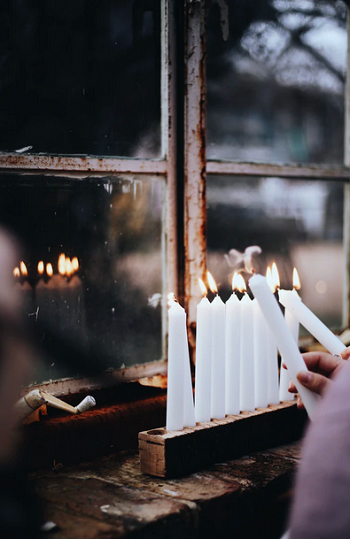Last Updated on January 17, 2023
Hanukah – The Jewish Festival of Lights

The Jewish Festival of Hanukkah (Heb: חנוכה) begins on the eve of the 25th day of the Hebrew month of Kislev and is celebrated for 8 days. Hanukkah is known as the Festival of Lights, a Jewish holiday that commemorates the Israelites (the Maccabees) victory over the oppressive Syrian-Greek rule by the king, Antiochus and the re-dedication of the Second Temple in Jerusalem.
The Temple needed to be cleansed, a new altar needed to be built in place of the polluted one and new holy vessels to be made. When the Israelites went to light the Temple’s menorah (candelabra), they found just a single measure of olive oil that would burn for only one day. Miraculously, that one-day’s supply burned for eight days – enough time for new oil to be prepared so that it was suitable for this ritual.
At the heart of the festival is the lighting of an 8 branched menorah or Hanukkiah every night: a single flame on the first night, two on the second evening, and so on till the eighth night of Hanukkah, when all eight lights are kindled. A 9th branch and candle, called a shamash is also lit each night and its purpose is to light the other candles. It is given a distinct location on the menorah, usually above or below the others.
Hanukkah customs include eating fried foods; latkes (potato pancakes) and sufganiot (jam filled doughnuts); playing with a dreidel (a spinning top on which are inscribed the Hebrew letters nun, gimmel, hei and shin, an acronym for Nes Gadol Hayah Sham, “a great miracle happened there”); and the giving of money gifts to children or Hanukkah gelt.
We learn some timeless lessons from the story of Hanukkah: light triumphs over darkness, purity over desecration and freedom over oppression.
Chag Sameach!
Rabbi Tzvi (Hilton) Wainstein


